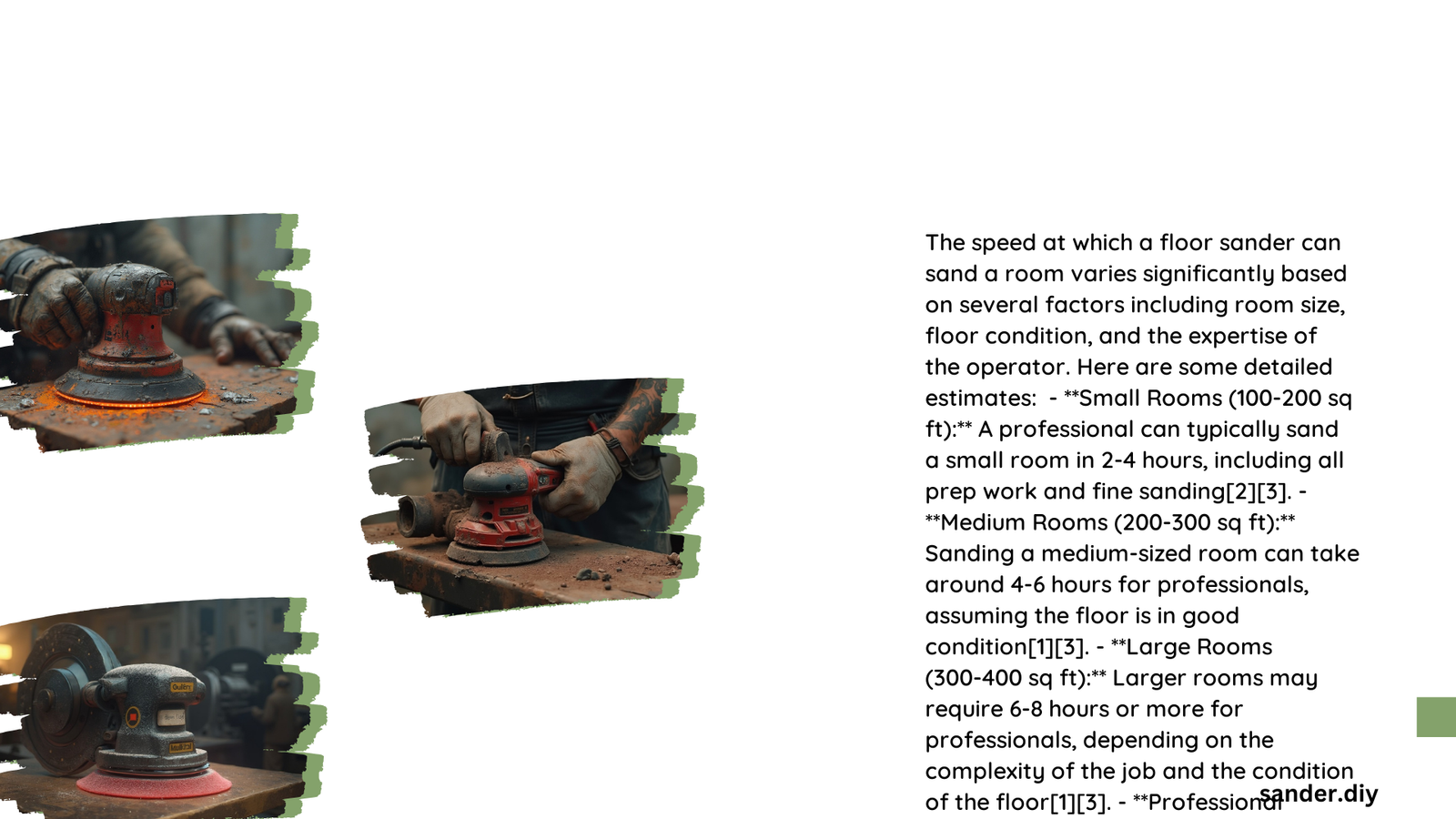Floor sanding speed varies dramatically based on sander type, room dimensions, and wood condition. Professional floor refinishers typically sand between 100-200 square feet per hour using drum sanders, with total room completion ranging from 1-10 hours depending on floor complexity, size, and required finish quality. Understanding these variables helps homeowners and professionals plan floor restoration projects effectively.
What Determines Floor Sander Speed?
Floor sander speed depends on multiple critical factors that significantly impact overall performance and efficiency. Understanding these elements helps predict how quickly a room can be sanded.
How Fast Do Different Sanders Perform?
Drum Sanders: Speed Champions
- Operate at approximately 1800 RPM
- Cover 100-200 square feet per hour
- Ideal for large, uniform floor surfaces
- Best for removing thick finishes quickly
| Sander Type | Speed Range (sq ft/hour) | Best Use Case |
|---|---|---|
| Drum Sander | 100-200 | Large rooms, heavy finish removal |
| Orbital Sander | 20-50 | Fine finishing, detailed work |
| Belt Sander | 50-100 | Small areas, edge work |
Orbital Sanders: Precision Performers
- Lower speed (around 175 RPM)
- Excellent for final polishing stages
- Slower but more detailed sanding approach
- Recommended for delicate wood surfaces
What Impacts Sander Performance?
Several crucial factors influence floor sander speed:
- Floor Condition
- Existing finish thickness
- Wood type (hardwood vs. engineered)
-
Surface irregularities
-
Sander Characteristics
- Motor power
- Sanding disc/belt quality
-
Operator skill level
-
Room Dimensions
- Smaller rooms: Faster completion
- Larger rooms: Extended sanding time
- Complex room layouts: Slower progress
How Long Will Sanding Take?
Room Size Estimates
- Small Room (100 sq ft)
- Drum Sander: 1-2 hours
-
Orbital Sander: 2-5 hours
-
Medium Room (200 sq ft)
- Drum Sander: 2-4 hours
-
Orbital Sander: 4-10 hours
-
Large Room (500 sq ft)
- Drum Sander: 5-10 hours
- Orbital Sander: 10-25 hours
Pro Tips for Faster Sanding
- Use progressive sandpaper grits
- Maintain consistent sander movement
- Choose appropriate sander for specific floor type
- Ensure proper equipment maintenance
- Practice proper technique to minimize rework
Potential Sanding Time Variations
Actual sanding duration can fluctuate based on:
– Wood species hardness
– Previous floor treatments
– Desired smoothness level
– Operator experience
Professional vs. DIY Considerations
| Approach | Average Speed | Pros | Cons |
|---|---|---|---|
| Professional | 200-250 sq ft/hour | Faster, expert technique | Higher cost |
| DIY | 50-150 sq ft/hour | Cost-effective | Slower, potential mistakes |
Final Recommendations

Select your floor sander strategically, considering room size, wood type, and desired finish. Drum sanders offer the fastest performance, while orbital sanders provide superior precision.
Reference:
1. Onfloor Technologies Sander Guide
2. City Floor Supply Sanding Techniques
3. Professional Flooring Association Resources
